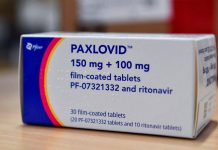Muscle relaxants, or muscle relaxants, are drugs advised to treat muscle pain, spasms, or spasticity.
Also called muscle cramps, muscle spasms are sudden, involuntary contractions of a group of muscles, which can be caused by excessive muscle strain. Muscle spasms are often associated with conditions like lower back pain, neck pain, and fibromyalgia, according to Healthline.
Certain OTC or prescription drugs can help relieve the pain and discomfort caused by muscle spasms. But doctors usually recommend muscle relaxants to treat spasms. Please note that muscle relaxers are not safe for everyone so you need to check with your doctor before using one.
Generic muscle relaxants typically belong to two classes of medications – antispasmodics and antispastics.
Antispasmodic drugs help reduce muscle spasms by working on the central nervous system. They inhibit the transmission of neurons in the brain, according to Medical News Today. Antispastics have a direct action on the spinal cord or the skeletal muscles.
Antispasmodics
Antispasmodics are further classified in to benzodiazepines and non-benzodiazepines. Benzodiazepines inhibit certain chemicals in the brain, while non-benzodiazepines act on both the brain and spinal cord. Generic muscle relaxants that belong to antispasmodics include:
- Diazepam (Generic Valium)
- Carisoprodol (Generic Soma)
- Cyclobenzaprine (Generic Flexeril)
- Metaxalone (Generic Skelaxin)
Antispastics
Antispastics work on the spinal cord or muscle cells. They include:
- Baclofen (Generic Lioresal)
- Dantrolene (Generic Dantrium)
- Tizanidine (Generic Zanaflex)
OTC
OTC muscle relaxants do not require a prescription, but they may have similar risks as a prescription muscle relaxant.
- Methocarbamol (Generic Robaxin)
- Ibuprofen (Generic Advil)
- Naproxen (Generic Aleve)
- Acetaminophen (Generic Tylenol)
Doctors may also advise using certain medications to treat muscle spasms, especially when the abovementioned drugs fail to work. They may recommend drugs that are not approved for that purpose by the Food and Drug Administration; it is called off-label drug use. Those drugs include:
- Clonazepam (Generic Klonopin)
- Lorazepam (Generic Ativan)
- Alprazolam (Generic Xanax)
- Clonidine (Generic Kapvay)
- Gabapentin (Generic Neurontin)
If left untreated, muscle spasticity can lead to muscle contracture, affecting your range of motion or damaging the affected joints. Remember, muscle spasms can be a sign of an underlying medical condition so always check with your doctor rather than self-medicating. Work with your doctor to get a care plan that can ease your pain and discomfort.























